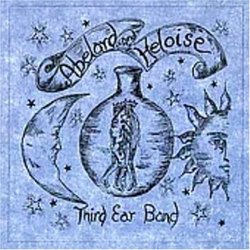Third Ear Band's true grand finale
mianfei | 09/06/2008
(5 out of 5 stars)
"Although often linked with the progressive rock movement, Third Ear Band in sound was as distant from that genre as could be imagined. Their line-up of oboist Paul Minns, percussionist Glenn Sweeney, violinist and violist Richard Coff and cellist Ursula Smith could not be described as typical of any genre. Although Minns' oboe playing did make a him a sort of "frontman" in the way Miles Davis, John Coltrane or Albert Ayler served as leaders of their jazz groups, the way in which Coff and Smith play their stringed instruments is so akin to folk that, when required to label Third Ear Band in any genre, I file them under "folk".
Nonetheless, for lovers of traditional or contemporary folk, Third Ear Band's first three albums will be a shock. Minn's airy, always light oboe playing can produce some quite remarkable dark tones, as is seen in the middle of the first piece on "Abelard and Heloise", which was commissioned as a soundtrack to a film about the famous medieval philosopher and his lover who became a nun.
Yet it is the way in which both Coff and Smith provide both melody and rhythm at once that puts Third Ear Band's first three albums into the stratosphere of musical achievement: they seem to play back and forth with their bows over such short distances that they can maximise the distinction between beats on a melody instrument so as to create an actual rhythm.
Still, the danceable tone of their previous album is completely gone and the melodies on tracks subsequent to the first can only be described as abstract even though the oboe and strings do not interlock to any great degree. Only on the fifth track and parts of the sixth (which could be seen as a reprise of the first track) are there traces of the "world music" feel often associated with Third Ear Band: for the rest the tone is slow and could be described as agonising over the difficulties both Abelard and Heloise must have faced during their lifetime. The fourth track reminds one of Sofia Gubaidulina's work on "In Croce", itself ranking among the great compositions of the twentieth century. However, it is this change to an extremely inaccessible, yet remarkably dark and powerful sound that makes "Abelard and Heloise" a real stunner from start to finish.
After this album, Ursula Smith left and Third Ear Band tried to make more accessible music with results that were more disastrous than any but the most wary listener could imagine. As a grand finale for one of the most daring groups of any era, however, "Abelard and Heloise" remains essential for those who can find a copy."


 Track Listings (6) - Disc #1
Track Listings (6) - Disc #1